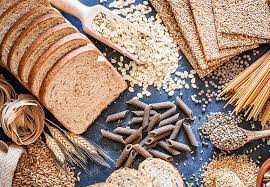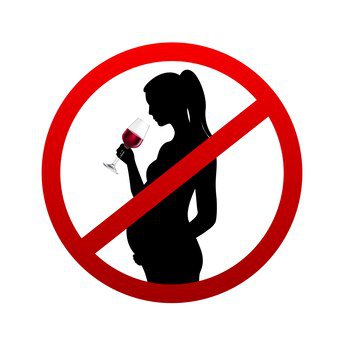
Healthy Eating after Delivery
Healthy Eating after Delivery
Stacey A
Feb. 22, 2022
Stacey A
Feb. 22, 2022
Congratulations!
After months of carrying your baby in your womb, with the ups and downs, trying to maintain a healthy lifestyle and a whole lot, it usually is all joy when you finally deliver and can hold your baby in your arms.
However, the journey doesn't end just yet. It is a well-known fact that we need healthy food to be able to go about our daily activities. This is especially true after delivery, your body has gone through so many changes, physical (your breasts fill up with milk, stretch marks, etc) and emotional (adjusting hormone levels). Yet, you need to fuel yourself to be able to meet the needs of your baby (breastfeeding) and also stay healthy.
But for some new mothers, losing the weight that was gained during pregnancy becomes more important than proper nourishment that would help with recovery, milk production and adequate rest. This shouldn't be the case though. You need all the energy you can get to be the best mom you can be. Here are a few tips on some healthy eating practices to take you through your nursing period.
Stay Very Well Hydrated Throughout the Day

Drinking enough water each day helps regulate body temperature, prevent infections, lubricate joints, maintain organ functions and more. Not only does the amount of fluid the body needs increase when a mother is nursing, about 90% of your breast milk is made up of water. Since your body is constantly loosing water through breathing, sweating, urination and breastfeeding, it is essential to take adequate amounts of fluids to replace what is lost. As a nursing mother, your body requires about 3 litres of water per day, which can come from beverages, drinking water or food, this helps to make up for the extra water used to make breastmilk. Do not overhydrate (drinking too much water). A good measure of whether you need more fluids or not is thirst. If you are craving water very badly then it means your body is already depleted of fluids, hence, it is best that you always drink just enough water so that you're not thirsty. Also, the colour of your urine tells a lot about your level of hydration; if it is dark or has a deep yellow colour, then you're not well hydrated. An almost clear or pale yellow colour shows you're getting adequate water and that's the target.
Eat Whole-Grain Carbohydrates

These days, the go-to method for losing weight in nursing mothers is to cut down on carbohydrate consumption and this is not the best. Losing weight drastically over a short period may put pressure on your body such that you cannot make enough milk and you may end up always feeling tired. Add some healthy whole-grain carbohydrates like brown rice into your diet to maintain your energy levels. Some common foods like millet, oatmeal, wheat bread, barley and corn are considered to be among the best whole-grains on earth. They contain all the necessary nutrients like Vitamin B, zinc, magnesium, potassium, fiber and antioxidants that boost up your immune system and also provide you with enough energy you need to take care of your child and yourself.
Avoid Alcohol

Some people say that drinking alcohol (beer) increases milk supply, it is quite the opposite. From researches, high levels of alcohol consumption have proven to reduce breast milk output by 20%. According to doctors, abstaining from alcohol is the safest option when one is breastfeeding though an occasional drink may not cause any problem so long as you're careful about the timing and the amount you take. The amount of alcohol in breast milk peaks 30 to 60 minutes after you have had your last drink and will stay in your body for about 2 to 3 hours. And this is just for one drink. Since it is passed through breast milk, if the baby is exposed to moderate or large amounts of alcohol, his/her physical and mental development, growth and sleep pattern may be damaged. On the side of the mother, moderate or large amounts of alcohol may lead to intoxication which could impair a mother’s judgement and her ability to safely care for her child. So my advice, just abstain.
Avoid Caffeine

Very common around us, caffeine is found in chocolate, coffee, tea, soda, among others. Generally, consumption of caffeine is considered safe even though it may come along with side effects like migraines, restlessness, irregular heart beat and high blood pressure. It is easily transferred through breast milk. Since your baby's organs are not as developed as an adult's, it is difficult for them to digest caffeine and get rid of it. Hence, large amounts of caffeine can accumulate in your baby's system over time and cause problems such as irritability (inconsolable crying) and bad sleep patterns. Doctors recommend that mothers who are breastfeeding take not more than 300mg of caffeine a day if they cannot do away with it.
Snack on Fresh Fruits and Vegetables

There are so many processed foods on the market these days that the idea of eating fruits on a regular basis is dying down. Fruits are a great source of rich nutrients and antioxidants that helps protect the body from infections, certain cancers and reduce the risk for heart diseases. In-between meals, make it a point to snack on fruits like oranges, bananas, apples, pineapples, watermelons, avocadoes, mangoes, grapefruit, blueberries, strawberries, guava and several other fruits. Like they say “an apple a day keeps the doctor away”. Also, make certain that fresh vegetables are a major part of your daily diet plan. Eat your carrots, green leafy vegetables, mushrooms, tomatoes, broccoli, cabbage and all the healthy vegetables you can find, in moderation always.
Other Articles in this Categories

Join The
Squad


Join The Squad


